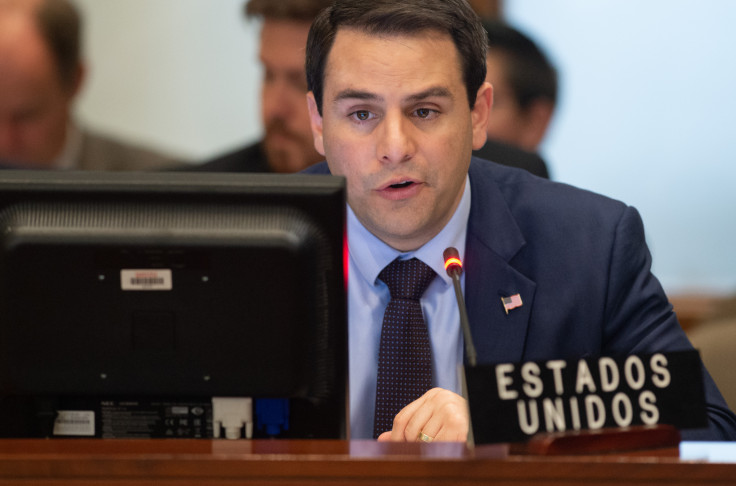
Carlos Trujillo, a Cuban-American diplomat, is rumored to be nominated for assistant secretary of state for Latin American affairs, alongside Senator Marco Rubio as the head of the Department, in the upcoming Trump administration, the Miami Herald reported. His career has drawn controversy, particularly for his hard-line stance on economic sanctions and his key role in providing the pretext for the 2019 coup d'etat in Bolivia.
Trujillo, who served as U.S. ambassador to the Organization of American States (OAS) during Trump's first term, is known for advocating stringent economic sanctions against Cuba, Venezuela, and Nicaragua. His support for these sanctions, which critics argue disproportionately harm civilians, is a hallmark of his foreign policy approach. Trujillo's policies have intensified the isolation of regimes in these countries, which he and others label as authoritarian.
However, his role in Bolivia's 2019 political crisis is perhaps the most controversial. In the lead-up to the crisis, Trujillo pushed the narrative of electoral fraud in Bolivia's presidential election, which helped set the stage for the ouster of President Evo Morales, the Center for Economic and Policy Research reported.
Despite widespread debunking of claims that Morales had rigged the vote — by institutions like The New York Times and MIT's Election Data Lab — Trujillo steered the OAS's election-monitoring team to support the fraud allegations, a pivotal move in escalating protests and garnering international backing for the coup.
In the days following the coup, Trujillo praised the violent protests against Morales's government, calling them a "salute to the courage" of Bolivians fighting electoral fraud. His comments came as Bolivian military and police forces helped push Morales to step down, a stance that garnered further criticism as the country descended into violence, including massacres of Indigenous groups opposing the coup.
Trujillo's policies and actions have made him a divisive figure, especially among those who oppose U.S.-backed regime-change efforts in the region. His tenure at the OAS also saw his support for other controversial Latin American figures, including former Haitian president Jovenel Moïse, the briefly self-proclaimed "president" of Venezuela Juan Guaidó, and the now-jailed former president of Honduras, Juan Orlando Hernández, who is serving a 45-year sentence for drug trafficking and weapons charges.
As Donald Trump prepares for a second term, a group of Cuban-American Republicans is preparing to take on key positions in the new administration, raising the Cuban regime's biggest concern: that Cuban exiles and their descendants will have significant influence over U.S. policy toward the island.
The most prominent role, if confirmed by the Senate, was given to Republican U.S. Sen. Marco Rubio of Florida, who is set to become the next secretary of state. He would be the first Hispanic and the first Cuban American to hold this position, a development that is likely to send shockwaves through Havana, where he is frequently vilified in state media as the country's enemy.
In addition to Carlos Trujillo, other like-minded Cuban Americans are poised to influence U.S. foreign policy toward Cuba and Latin America. U.S. Rep. Mario Díaz-Balart, for instance, is expected to become the next chairman of the House Appropriations Committee, according to sources cited by the Miami Herald.
© 2025 Latin Times. All rights reserved. Do not reproduce without permission.




